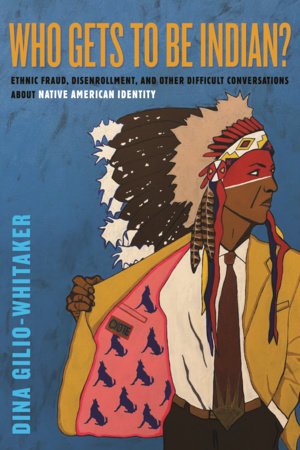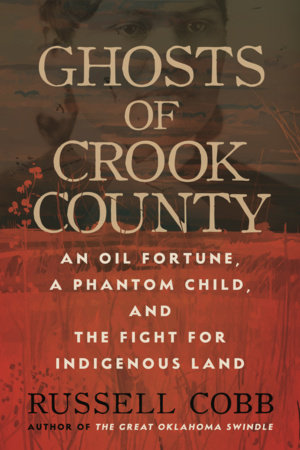This is an important book – important for truth, important for justice, important for opening new dialogues, and important for addressing the continuing colonial domination of indigenous nations within the borders of the United States.”
—The Cherokee One Feather
“Meticulously documented, this thought-provoking treatise is sure to generate discussion.”
—Booklist
“What is fresh about the book is its comprehensiveness. Dunbar-Ortiz brings together every indictment of white Americans that has been cast upon them over time, and she does so by raising intelligent new questions about many of the current trends of academia, such as multiculturalism. Dunbar-Ortiz’s material succeeds, but will be eye-opening to those who have not previously encountered such a perspective.”
—Publishers Weekly
“From the struggles against the early British settlers in New England and Virginia to the final catastrophes at Sand Creek and Wounded Knee, Dunbar-Ortiz never flinches from the truth.”
—CounterPunch
“[An] impassioned history…. Belongs on the shelf next to Dee Brown’s classic, Bury My Heart at Wounded Knee.”
—San Francisco Chronicle
“Roxanne Dunbar-Ortiz’s An Indigenous Peoples’ History of the United States helped me clarify my place in this country. It confirmed what had been told to me by my ancestors: that Indigenous peoples, from the North Pole to the South, have been here since before the world was known as round. As a conquering nation, the United States has rewritten history to make people of the U.S. forget our past as natives to this land. This is especially apparent in the Mexi-phobic, immigrant-phobic policies of our time.
“An Indigenous Peoples’ History of the United States (2014) helped me clarify my place in this country…This book is necessary reading if we are to move into a more humane future.”
—Sandra Cisneros, author of The House on Mango Street
“A must-read for anyone interested in the truth behind this nation’s founding.”
—Veronica E. Velarde Tiller, PhD, Jicarilla Apache author, historian, and publisher of Tiller’s Guide to Indian Country
“This may well be the most important US history book you will read in your lifetime. . . . Dunbar-Ortiz radically reframes US history, destroying all foundation myths to reveal a brutal settler-colonial structure and ideology designed to cover its bloody tracks. Here, rendered in honest, often poetic words, is the story of those tracks and the people who survived—bloodied but unbowed. Spoiler alert: the colonial era is still here, and so are the Indians.”
—Robin D. G. Kelley, author of Freedom Dreams
“Dunbar Ortiz’s . . . assessment and conclusions are necessary tools for all Indigenous peoples seeking to address and remedy the legacy of US colonial domination that continues to subvert Indigenous human rights in today’s globalized world.”
—Mililani B. Trask, Native Hawai‘ian international law expert on Indigenous peoples’ rights and former Kia Aina (prime minister) of Ka La Hui Hawai‘i
“An Indigenous Peoples’ History of the United States provides an essential historical reference for all Americans. . . . The American Indians’ perspective has been absent from colonial histories for too long, leaving continued misunderstandings of our struggles for sovereignty and human rights.”
—Peterson Zah, former president of the Navajo Nation
“An Indigenous Peoples’ History . . . pulls up the paving stones and lays bare the deep history of the United States, from the corn to the reservations. If the United States is a ‘crime scene,’ as she calls it, then Dunbar-Ortiz is its forensic scientist. A sobering look at a grave history.”
—Vijay Prashad, author of Public Enemy
“Justice-seekers everywhere will celebrate Dunbar-Ortiz’s unflinching commitment to truth—a truth that places settler-colonialism and genocide exactly where they belong: as foundational to the existence of the United States.”
—Waziyatawin, PhD, activist and author of For Indigenous Minds Only
“Dunbar-Ortiz strips us of our forged innocence, shocks us into new awarenesses, and draws a straight line from the sins of our fathers—settler-colonialism, the doctrine of discovery, the myth of manifest destiny, white supremacy, theft and systematic killing—to the contemporary condition of permanent war, invasion and occupation, mass incarceration, and the constant use and threat of state violence.” —Bill Ayers
“Roxanne Dunbar-Ortiz’s Indigenous Peoples’ History of the United States is a fiercely honest, unwavering, and unprecedented statement, one which has never been attempted by any other historian or intellectual. The presentation of facts and arguments is clear and direct, unadorned by needless and pointless rhetoric, and there is an organic feel of intellectual solidity that provides weight and trust. It is truly an Indigenous peoples’ voice that gives Dunbar-Ortiz’s book direction, purpose, and trustworthy intention. Without doubt, this crucially important book is required reading for everyone in the Americas!”
—Simon J. Ortiz, Regents Professor of English and American Indian Studies, Arizona State University
“Roxanne Dunbar-Ortiz writes a masterful story that relates what the Indigenous peoples of the United States have always maintained: Against the settler U.S. nation, Indigenous peoples have persevered against actions and policies intended to exterminate them, whether physically, mentally, or intellectually. Indigenous nations and their people continue to bear witness to their experiences under the U.S. and demand justice as well as the realization of sovereignty on their own terms.”
—Jennifer Nez Denetdale, Associate Professor of American Studies at the University of New Mexico and author of Reclaiming Diné History







